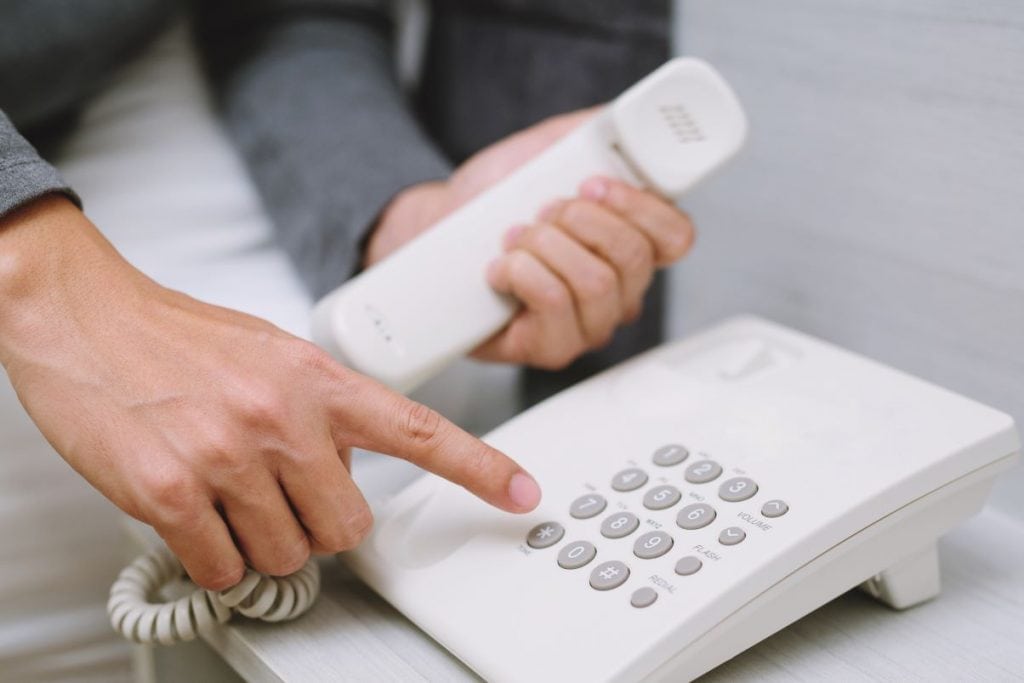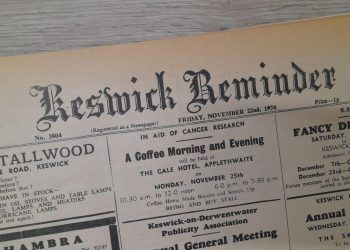
An elderly Threlkeld couple say they are at their wits’ end after being plagued by nuisance phone calls for more than two years.
Pensioners Carol and Roy Smith have now logged a total of 13 A4-sized pages of unsolicited calls made to their ex-directory landline.
Many are from scammers as far afield as India and Africa, claiming to be from companies like Amazon and demanding payment for non-existent products or deliveries.
Others take the form of threats to cut off the couple’s electricity or broadband unless fictitious bills are paid immediately.
What concerns the Smiths most is that scammers have now found a way of pretending it is a local call.
The 017687 prefix has started to appear – suggesting the call was made locally — making it hard for them to let it ring off.
Carol said: “Normally if you don’t recognise a number you either ignore it or let it go to your answering machine. But when you see it’s a Keswick number the chances are you’ll pick it up, at which point they’ve got you.”
As well as going ex-directory, the pair have a call-blocking facility, yet scammers still get through.
When Carol contacted Cumbria police about the problem, she was told in an email response that it was common for scammers to piggyback local numbers to make them look local and less suspicious.
“The calls keep coming,” said Carol. “And while Roy’s got a mobile phone, I don’t like them and don’t really know how to use them so I rely on the landline.”
The Smiths are also fed up of reaching the phone only for the unknown caller to cut off as soon as they answer. Yet trying to get the problem resolved is not easy.
Depending on their seriousness, reports are sent to the National Fraud Intelligence Bureau (NFIB) which then decide whether they should be sent to the police for further action.
However, most telephone scams tend to be dismissed as “too small” to warrant referral to police forces.
Trading Standards report that lockdown has resulted in a wave of scam calls which often affect elderly people.
The timescale appears to correspond with when Carol and Roy started to get repeated calls.
“Everyone was at home so they were easy prey,” explained Louise Baxter-Scott, head of the national Trading Standards scam team.
“One woman had a mobile call telling her that there was an ongoing court case against her over an unpaid tax bill,’ said Ms Baxter-Scott.
“The judge and jury were on the line, the scammer told her, but if she immediately transferred payment of £999, the case would go better for her.
“She panicked and paid but was told it was not enough. So she went to the bank, with the scammer still on the line, and sent another £4,000. As soon as she had done it, she realised it was a scam.”
Age UK has issued advice for people to protect themselves against scammers. This includes:
- Don’t reveal personal details such as your bank account details or PINs over the phone, even if the caller claims to be from your bank.
- Hang up if you feel harassed or intimidated, or if the caller talks over you without giving you a chance to speak.
- Ring the organisation if you’re unsure whether the caller is genuine, making sure you find the number yourself and don’t use the one provided by the caller.
- Don’t be rushed into providing your personal details.
According to Trading Standards the top three scams are:
- People selling insurance for white goods, offering cover for fridges, freezers and washing machines.
- Impersonation callers claiming to be from the NHS, BT, Amazon or utility firms.
- Domestic home repairs such as boiler services and drainage.








